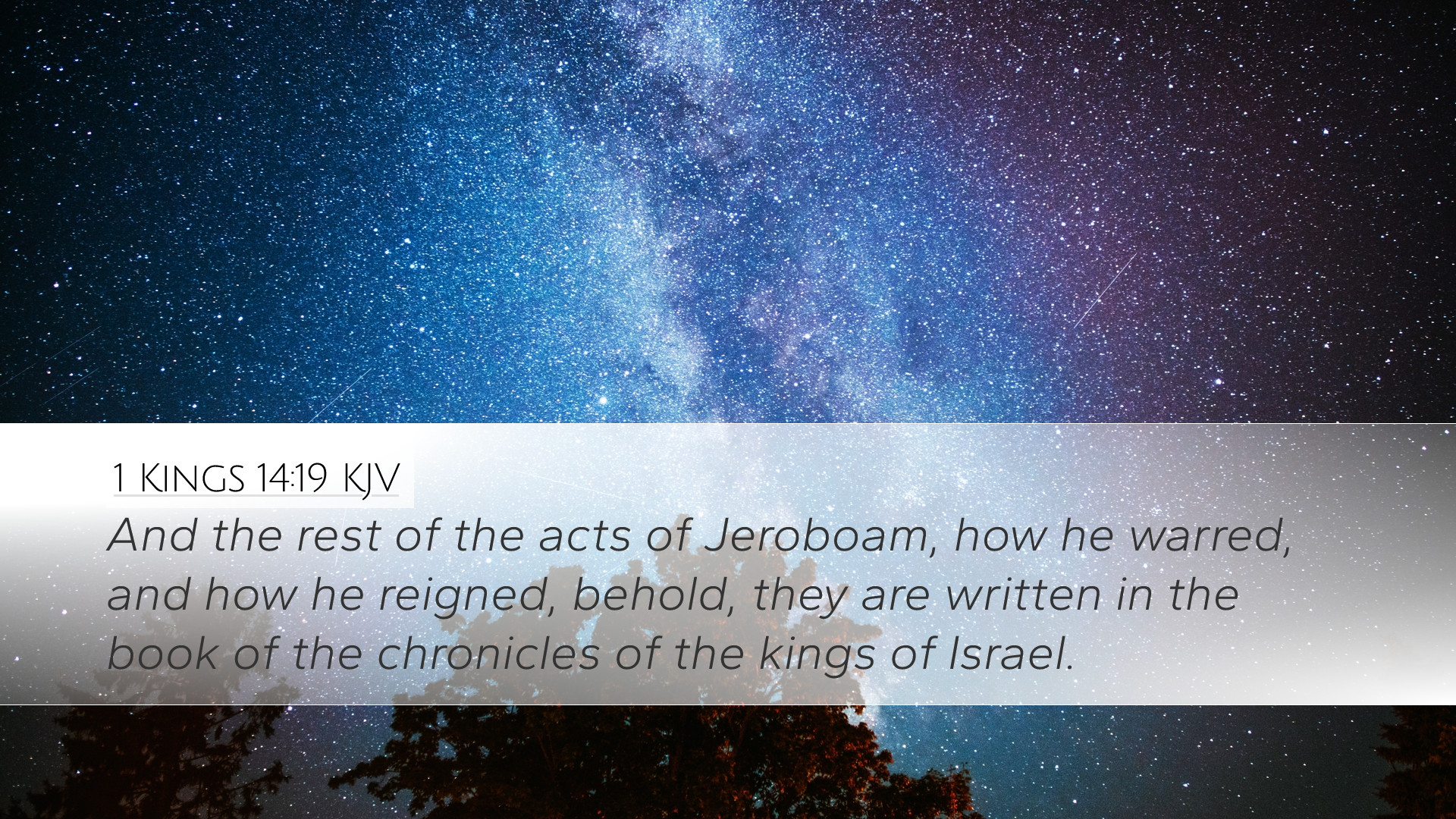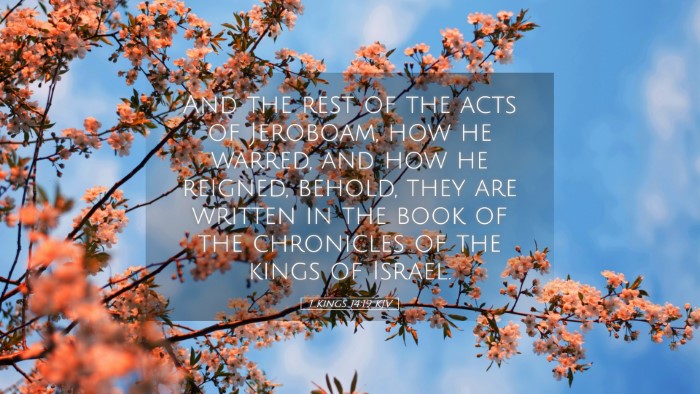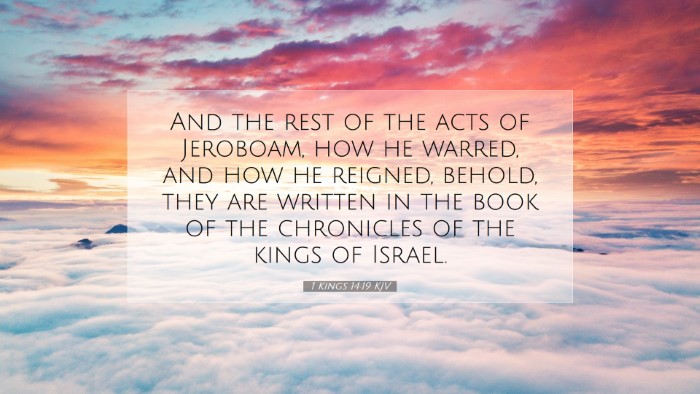Commentary on 1 Kings 14:19
1 Kings 14:19 reads: "And the rest of the acts of Jeroboam, how he warred, and how he reigned, behold, they are written in the book of the chronicles of the kings of Israel."
Overview
This verse serves as a transitional statement in the narrative of Jeroboam's reign over Israel. It summarizes the documentation of his reign and the events surrounding his rule. This commentary synthesizes insights from various public domain commentaries to provide a comprehensive exploration of the implications of this verse.
Contextual Background
Jeroboam, the first king of the northern kingdom of Israel after the division from Judah, is a figure of significant importance in biblical history. His actions defined the trajectory of Israel's disobedience to God, establishing practices that were contrary to the worship of Yahweh.
- Historical Significance: Jeroboam's reign marked the beginning of a distinct line of kings in Israel, showcasing both the political challenges and spiritual apostasies of the times.
- Literary Structure: This statement reflects the biblical technique of summarizing the lives of kings, pointing readers towards larger themes of faithfulness versus disobedience.
Thematic Elements
The themes arising from Jeroboam's rule resonate deeply through the text of 1 Kings, particularly the dichotomy of divine guidance versus human failure.
- Divine Judgment: Subsequent rulers are affected by Jeroboam's choices. His establishment of golden calves as idols (1 Kings 12:28-30) illustrates how leadership influences the spiritual state of a nation.
- Historical Documentation: The reference to the "book of the chronicles" signifies the importance of recording history, particularly events of spiritual significance that would serve as lessons for future generations.
Commentary Insights
Matthew Henry's Perspective
Matthew Henry emphasizes that the mention of Jeroboam's acts serves as a reminder of God's sovereign record-keeping. He notes that while Jeroboam's military exploits and reign are highlighted as noteworthy, they ultimately fall short of the standards set by God.
Henry also points out the importance of acknowledging historical acts both for learning and for accountability. He underscores that every leader is accountable to God, and their actions are recorded not only in the annals of history but also in the divine ledger.
Albert Barnes's Commentary
Albert Barnes brings attention to the political and military aspects of Jeroboam's reign. He suggests that although Jeroboam engaged in significant military actions, these were often driven by fear and insecurity rather than faith in God. This perspective emphasizes the moral and spiritual implications of political leadership.
Barnes notes that the chronicles speak to the legacy of a king. The accounts of Jeroboam highlight his failures, urging readers to reflect on the consequences of leading a nation away from God. The closing phrase reminds us that God's history is recorded, and leaders should heed this cautionary tale.
Adam Clarke's Insights
Adam Clarke's analysis highlights the sociopolitical context of Jeroboam’s reign. He points out how Jeroboam's initial successes led to a self-reliance that estranged him from reliance on God. Clarke suggests that the "warred and reigned" descriptor illustrates a life marked by conflict and an unyielding desire to maintain power.
Clarke also echoes the significance of the records kept regarding the kings of Israel, indicating that history serves a dual role—chronicling acts while also serving as a moral compass for reflection and repentance.
Lessons for Today’s Leaders
The narrative encapsulated in 1 Kings 14:19 serves as a profound lesson for current leaders, both in the church and wider society.
- Accountability: Leaders must recognize that their actions are recorded in the annals of history and divine judgment. The implications of their decisions extend beyond their immediate reign.
- Faithfulness to God: True success is measured by adherence to God’s commands. Leaders are called to guide their constituents towards faith rather than personal ambition.
- Reflection on Legacy: Evaluating the legacy one leaves behind is crucial. This means looking beyond military and political victories to the spiritual wellbeing of the community.
Conclusion
1 Kings 14:19 encapsulates an important juncture in the history of Israel, presenting not only a summary of Jeroboam’s reign but also serving as a reminder of the enduring impact of a leader's choices. The insights gathered from Matthew Henry, Albert Barnes, and Adam Clarke provide a multifaceted understanding of this text, urging readers to consider both the historical context and the modern applications of these principles. The reverberating call remains clear: to lead with integrity, faithfulness, and a consciousness of the divine oversight in all things.


